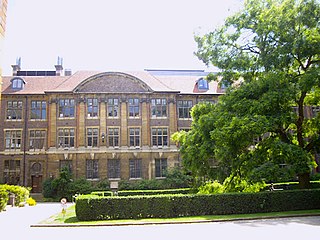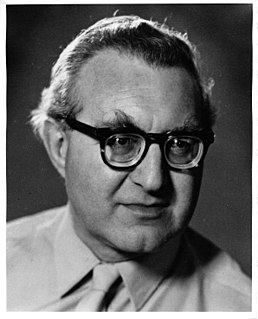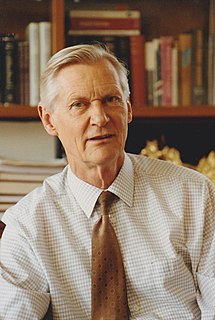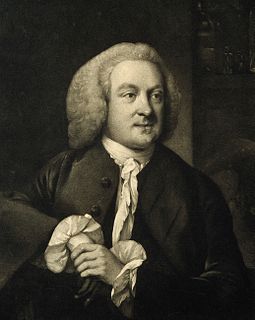
Alexander Robertus Todd, Baron Todd of Trumpington was a British biochemist whose research on the structure and synthesis of nucleotides, nucleosides, and nucleotide coenzymes gained him the Nobel Prize for Chemistry.

The Department of Plant Sciences is a department of the University of Cambridge that conducts research and teaching in plant sciences.
David Mervyn Blow was an influential British biophysicist. He was best known for the development of X-ray crystallography, a technique used to determine the molecular structures of tens of thousands of biological molecules. This has been extremely important to the pharmaceutical industry.
Sir Ian Morris Heilbron DSO FRS was a Scottish chemist, who pioneered organic chemistry developed for therapeutic and industrial use.
Henry Ellis Daniels FRS was a British statistician. He was President of the Royal Statistical Society (1974–1975), and was awarded its Guy Medal in Gold in 1984, following a Silver medal in 1947. He became a Fellow of the Royal Society of London in 1980. The Parry-Daniels map is named after him.
Steven Victor Ley CBE FRS FRSC is Professor of Organic Chemistry in the Department of Chemistry at the University of Cambridge, and is a Fellow of Trinity College, Cambridge. He was President of the Royal Society of Chemistry (2000–2002) and was made a CBE in January 2002, in the process. In 2011, he was included by The Times in the list of the "100 most important people in British science".

The School of Physics and Astronomy at the University of Manchester is one of the largest and most active Physics departments in the UK, taking around 250 new undergraduates and 50 postgraduates each year, and employing more than 80 members of academic staff and over 100 research fellows and associates. The school is based on two sites: the Schuster Laboratory on Brunswick Street and the Jodrell Bank Centre for Astrophysics in Cheshire, international headquarters of the Square Kilometre Array (SKA).
Nicholas John Seymour Mackintosh, was a British experimental psychologist and author, specialising in intelligence, psychometrics and animal learning.
Brian Frederick Gilbert Johnson is a British scientist and emeritus professor of chemistry at the University of Cambridge. He was also Master of Fitzwilliam College, Cambridge from 1999 to 2005.
The Sir Samuel Hall Chair of Chemistry is the named Chair of Chemistry in the School of Chemistry at the University of Manchester, established through an endowment of £36,000 in 1913 by the Hall family. Chairs have included the following chemists:

The School of Chemistry at the University of Manchester is one of the largest Schools of Chemistry in the United Kingdom, with over 600 undergraduate and more than 200 postgraduate research students.
John Philip Cooper (1923–2011) was a Professor of Agricultural Botany at the University of Wales. He was elected a Fellow of the Royal Society (FRS) in 1977, and appointed CBE in the 1983 Birthday Honours.
Ian William Murison Smith was a chemist who served as a research fellow and lecturer in the Department of Chemistry, University of Cambridge from 1963 to 1985 and Professor of Chemistry at the University of Birmingham from 1985 to 2002.









